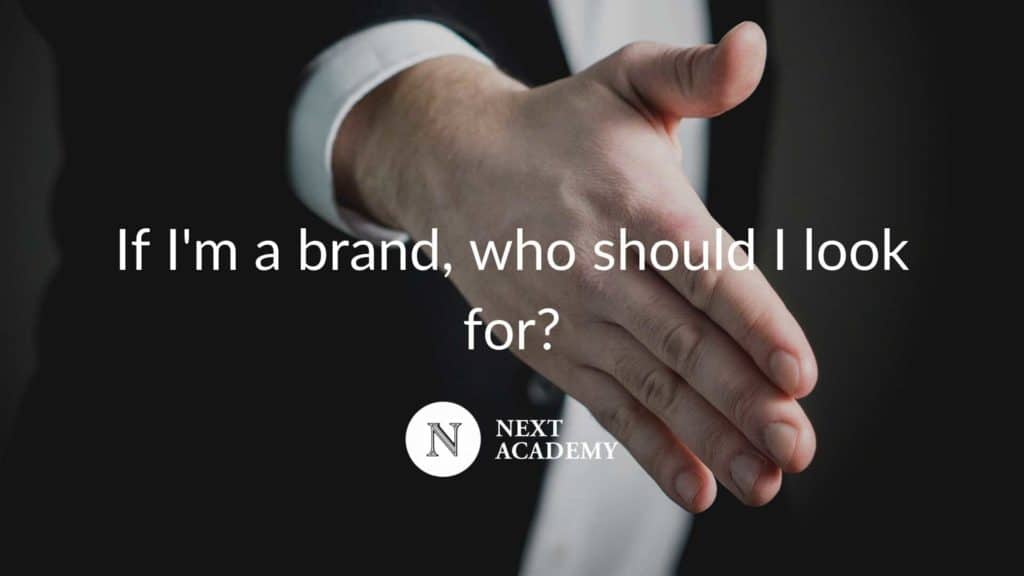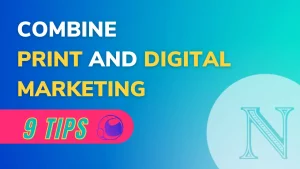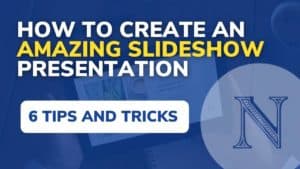Audrey: Today’s burning question is this, “If I’m a brand looking to have branded content, what sort creators should I be looking for?
Karl: Great question, and I think the key to that is really understanding who are you trying to target. So, if I’m a luxury brand and I’m targeting a crowd that is after luxury and can afford luxury items, you really need to go and to look for creators that would also fit that as a style. So I think thinking about the audience makes using data to really go deep and understand that, “Hey, they really have the audience that we want.” After that it will be looking at the creators themselves to see, “Hey, have they been consistent in their content? Have they been controversial or perhaps stepping the wrong lines in their content? What’s their history,-
Audrey: The total voice right?
Karl: … their tone, their style? Are they professional to us? Professionals at what grade?” Because a lot of people just assume, “Hey, this guy is really popular and I want to work with him. But the experience turns out to be an absolute nightmare because maybe it’s not a good fit or whatever reasons there are. So I think having that at the back of your campaign, at the back of your mind before you approach any creator is actually really critical just because some guy has five million followers, it doesn’t mean that he might be a good fit for you. I think local audiences, localized audiences, are also really important.
For example, you might not want to necessarily find the biggest creator who has a huge audience, but maybe just a small segment of that would be your local targeted audience, versus somebody who has a lower total followership, but is a real concentrate of locals that you are going after in that age category. So I think thinking, doing your homework, thinking about these things, getting word around the industry, “Hey, what’s that experience been? Who should I partner? and thinking hard about that is actually really important.
Audrey: Okay. If I’m a brand and let’s just say, I come up to you right? And I would love to know your customer profiles or your audience profiles, what sort of questions should I ask you or what kind of information would you actually provide me?
Karl: I would look at stuff that we have done that would be similar, perhaps in this context of you guys, maybe an education space. “What was similar campaigns in our portfolio that we’ve worked on? How did that go?” I think that’s a great way to say, “Hey, case studies are a great way to hedge my risks versus a creator who has never even done anything in that space.” You are not going to be too confident of whether he can drive the message across in the right manner. I think also going deep to showcase the team, learn about the processes, walk through hand in hand what you can expect at which stage. “How long is it going to take? What kind of deliverables you expect? How many revisions can we go through?” I think those are things that we do personally to hand hold clients to make them feel safe, to make them feel like they’re working with professionals, not a bunch of school kids who have no idea what they’re doing.
So I think those are things that we do at various levels so I think we’ve met some really, really senior folks in management who are not even from marketing teams, and just reassuring them that, “Hey, your investment with us is really going to be fine, and it’s not something that will go to a place where you feel it’s going to be risky because we’re professionals at what we do.” Even though the content at the end of the day is funny, it’s entertaining, it’s slapstick at times, they need to see what happens behind cameras. And usually that’s the way that they feel confident in us.
Audrey: Yep, and not just that, I think previously we were talking a little bit. You mentioned to me that what’s also very important is audiences versus content development because for in this space if the content is only purely all sponsor content, and in other words there are no other moments where you actually engage your audience with genuine content, that wouldn’t work as well right?
Karl: Yep.
Audrey: How should one brand assess if this brand continuously engage the audiences and continuously create content that would be evergreen I guess?
Karl: We talk a lot about audience growth. So even though for example we’ve been in Malaysia for the last three years, our audience growth is still very, very strong, and data analytics proves all of that. So I think that’s really important.
Karl: In today’s day and age people want new things all the time. Formats change, preferences change, even the platform like Facebook, YouTube, they change, and they optimize and they prioritize different types of content. So to show that you have been growing, to work with a creator that has been growing consistency is actually really important because that also shows that they’re innovating, that they have new products, new styles, new content, new personas. And I think that is also another safe bet versus going for somebody who’s been doing the same thing for the last eight years, audience is really sort of dropping in numbers and not that promising. I think that’s something to consider as well.
Audrey: Let’s just be truthful. Probably if a brand or if a creator whose obviously audience they have not been exactly developing, their audience numbers are dropping and so on, they wouldn’t share this information with a brand right?
Karl: Absolutely.
Audrey: Because I’m going to put in a lot of money to create this content, as a brand how do you think it’s best to protect myself especially when it comes to creators, who … “I’m not going to be super transparent with everything.”
Karl: Right. I think there are a lot of the third party analytics tools that you can actually use. For example, Socialbakers is a great way to show, attract actually, what this creator has been doing, what this channel has been focusing on, and you can see everything is transparent. It’s open source through YouTube or Facebook, and you can find out everything that you want to find out without ever talking to the creator himself. So I think that is a great way to actually do your homework, again before you spend that money, so that you really get the maximum ROI for your investment.
And also, talking to industry peers, understanding if let’s say, you know of another brand partner who’s worked with a creator recently, “What was that experience like? Was it a pleasant experience? Were they professional? Did they deliver on time? Did you actually hit the results that you were targeting?” And I think that built over time is really the way to go.
Audrey: Nice. All right. I think that’s pretty much it for now. Thank you so much for watching, and if you have any more questions you want to ask us, feel free to drop by at Next Digital Marketing Lab.
-
Josh Tenghttps://www.nextacademy.com/author/josh/
-
Josh Tenghttps://www.nextacademy.com/author/josh/
-
Josh Tenghttps://www.nextacademy.com/author/josh/
-
Josh Tenghttps://www.nextacademy.com/author/josh/
 What We Have Done |
What We Have Done | 


